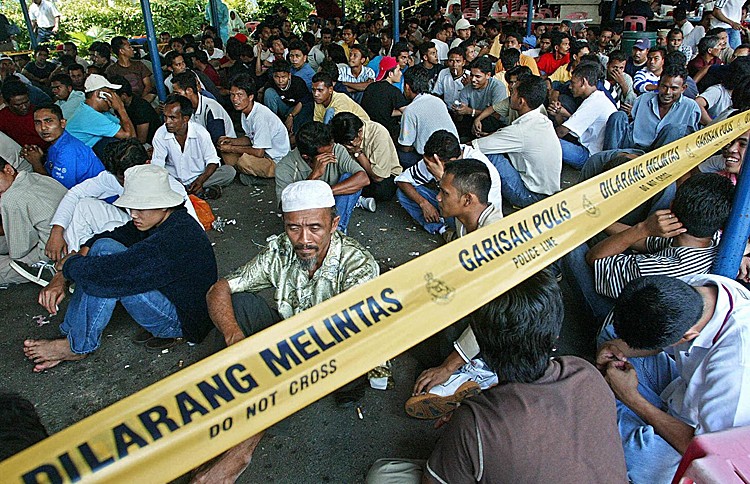Malaysia in Focus as Refugee Deal Stalls
Refugees from Malaysia are due to arrive this week, it remains to be seen whether the plan will go ahead.

Illegal immigrants arrested in Kuala Lumpur after not having travel documents. Australia transfer arrangement with Malaysia may help improve conditions for asylum seekers in Malaysia but whether it goes ahead and can stop the boats remains to be seen. Jimin Lai/AFP/Getty Images
|Updated:





